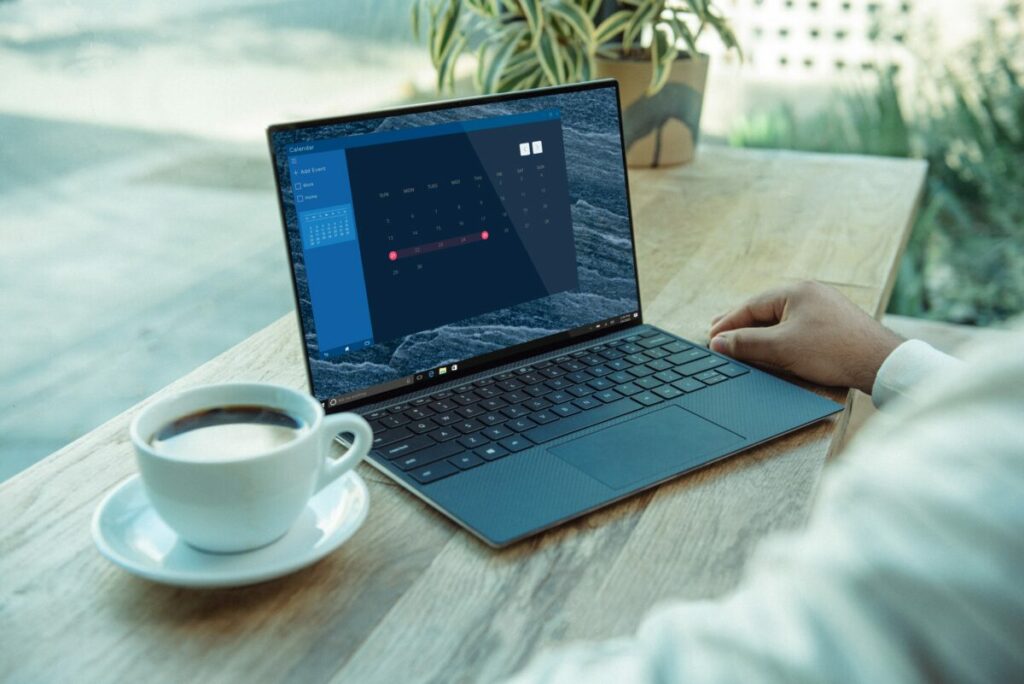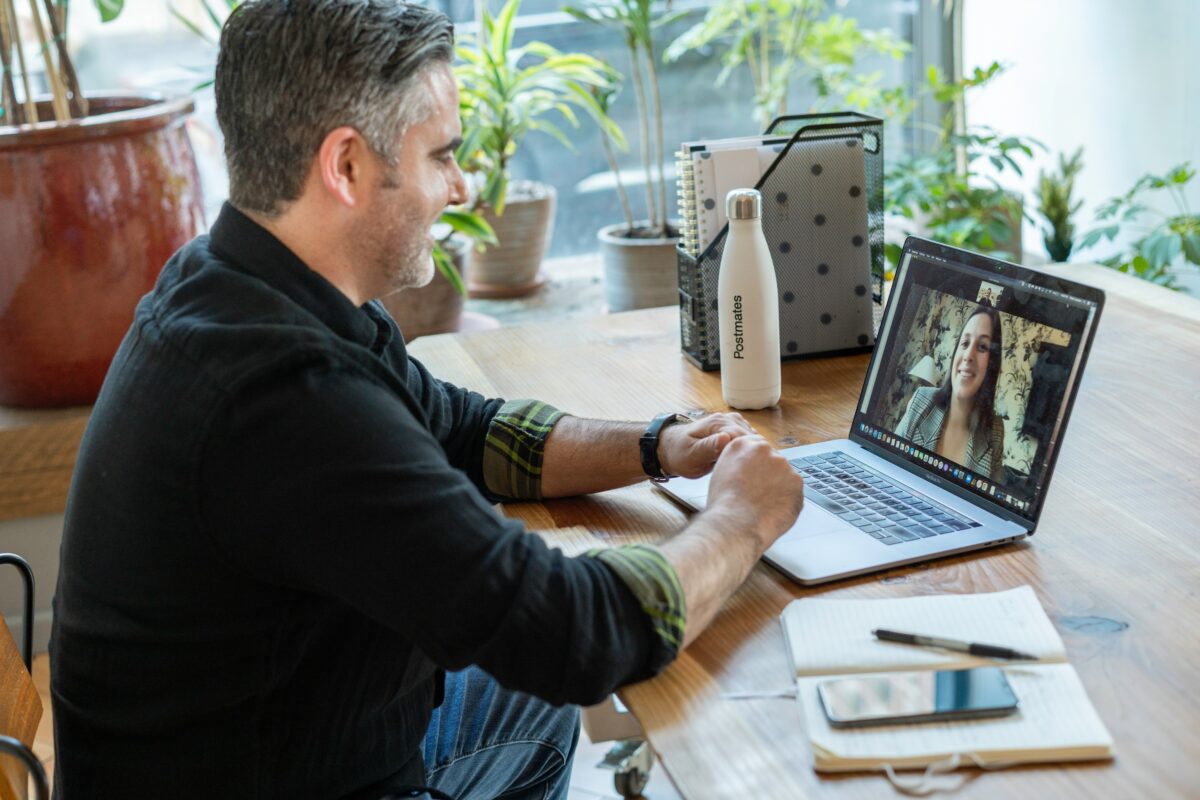The options for interviewing candidates were once restricted to over the phone or in-person interviews. However, recently technology has transformed hiring methodologies, with remote interviews providing an opportunity for candidate screening in the initial recruitment phases, or in light of the pandemic, complete remote interviews followed by a hiring decision.
Whether the intention is for applicant screening or interviewing local or global candidates, conducting a productive remote interview is straightforward and effective when you follow our guide.
What is a remote interview?
A remote interview is conducted with the employer and interviewee in different locations. The virtual meeting takes place using a video conferencing platform on a computer or laptop or an app on a tablet or smartphone.
The many benefits of remote interviews include speeding up the hiring process, convenience (no travel), and the possibility to record meetings, aiding the review and decision-making process.
Remote interview/conferencing software

Video conferencing software that is suitable for remote interviews includes Zoom, Skype, WebEx Meetings, or GoToMeeting. There are many more apps and software choices to enable you to find the best fit for your goals.
You will need a plug-in or built-in webcam and a reliable internet connection. It helps to have a backup plan in place before starting your meeting.
Could you use your smartphone’s internet connection if your work network goes down? Could you switch to a phone interview or an alternative virtual conferencing software if there is a technical glitch at your end or the candidates?
Reviewing your current interview process
Whether you are making a temporary or permanent switch to remote hiring, it pays to review your existing process. Consider whether your interview process is structured and effective and what you could do better.
Remember that your goal is to collate evidence as to if the candidate has the necessary skills and experience to conduct the role and if they have the personal and professional values to become a good company culture fit.
We recommend creating a standardised interview structure, at least on a per role basis. Leveraging a standard process and set of questions aids candidate evaluation and comparison.
Remote interview preparation

To get your online meeting out of the starting blocks, you need to relay various information to the candidate ahead of time. Inform the candidate:
- The date and time of the interview
- Who the interview is with
- Whether you require video or audio-only
- What conferencing platform you will use
- If you expect to use screen sharing
- Remote interview tips and courtesy for the interviewee
Remote interview tips
A successful online interview should follow these tips:
Ensure a quiet background
Maintain focus by ensuring incoming calls and email notifications are muted at both ends.
Test your microphone
Make a good impression by testing your hardware before connecting with the interviewee. Video conference with a colleague first, and if the built-in microphone is insufficient, consider an external microphone.
Maintain eye contact
Look directly at the candidate to ensure you don’t appear distracted or disinterested. Paying attention to the candidate’s body language and facial expressions can also be quite insightful to their character and mindset.
Be professional
Maintain the same level of professionalism as a face-to-face interview. Wear the appropriate professional dress, clear clutter from your desk, and ensure the suitability of the background, particularly if you are interviewing from home.
You will need to think about adequate lighting and positioning yourself with natural light in front of you.
Prepare the right questions
Prepare all your questions beforehand, comprising situational, open-ended, and behavioural questions. To assess skills, we recommended having the job description and job advert at hand, which can form the basis of the entire interview.
Avoid back to back meetings
Hiring managers rarely conduct one job seekers’ meeting after another. It helps to account for an extra ten minutes after virtual interviews to double-check that your notes are accurate while the discussion is still fresh in your mind. A further ten minutes before the following interview starts will help you clear your mind so you do not lose focus on the next applicant.
Hiring manager resources
If you are preparing to recruit and fill a job, these resources will help you hire the top talent you are searching for:
- Formatted interview structure
- A guide on how to hire
- Recruitment strategy
- Key questions to ask candidates
- Flat fee recruitment
- Job Advertising
- Questioning techniques
- How to conduct phone interviews
- How to interview candidates
- Questions not to ask in an interview
- Should salary be discussed in an interview
Interviewer FAQs
If you have questions surrounding the recruitment process, explore the frequently asked questions below.
Job interviews conducted online using conferencing software, and a camera (webcam) fall into this category. You can speak to the person and evaluate candidates without or prior to bringing them in for a formal in person meeting.
All your preparations should be made before talking to the applicant. We recommend that you have the questions to ask in an interview written down, along with the job description and CV of the candidate. Performing a technology test before the interview begins will ensure you appear professional.
The best talent might be considering multiple offers, and the interviewers that know what they are doing, have set expectations beforehand, and run the entire process smoothly often become the top choice for applicants.
Hiring managers are unlikely to breach employee privacy rights or discrimination laws during conferencing. It is wise to be careful that you do not ask discriminatory questions about sexuality, age, religion, or race during the small talk.
Competency-based interview questions are good interview questions. You might find it helpful to explore interview techniques such as the STAR interview technique (Situation, Task, Action, Result).
With remote work on the rise, partly due to the pandemic and rapid evolution of technology, many employers conduct their whole recruitment process online. However, others prefer to continue talking to top prospects in an in person interview.
It all comes down to your preference and the nature of the role you are filling. If the role puts the worker in face-to-face contact with customers or business partners, meeting in person is advisable.
It would help if you did not ask questions that may be considered discriminatory. Have your interview questions and answers ready, ensure you are online a few minutes early, wear professional dress, and consider if the background of your environment is appropriate.
Introduce yourself and the company, considering the company values and mission. Keep initial small talk short and focus on your questions, the job description, and the candidate’s resume. When you wrap up the meeting, be clear on relaying the next steps so the applicant knows what to expect next.

